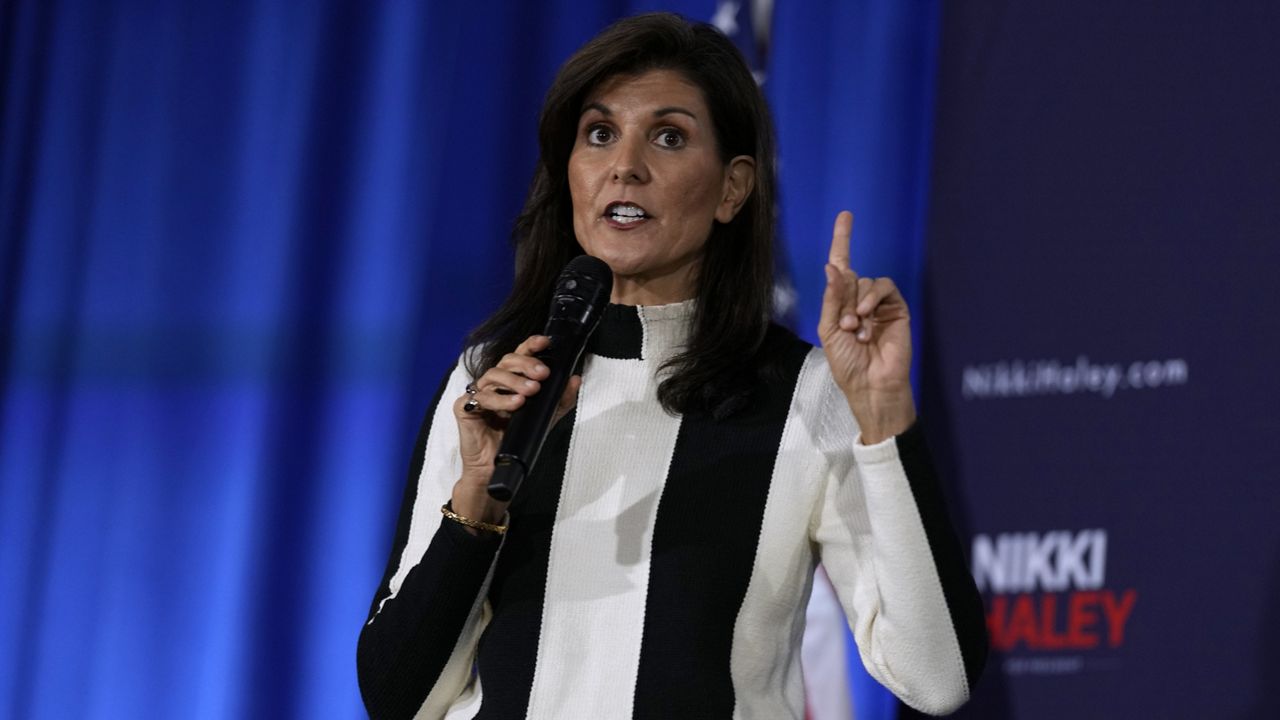If former President Donald Trump returns to the White House, the two federal criminal cases against him are likely to be squashed, either by a self-pardon or a new attorney general.
But Trump’s top two Republican challengers made clear Thursday that, if elected, they would spare him the possibility of prison.
What You Need To Know
- Donald Trump’s top two Republican challengers made clear Thursday that, if elected, they would spare him the possibility of prison
- Answering a question from a 9-year-old at a town hall in New Hampshire, former Ambassador to the United Nations Nikki Haley said she would pardon Trump if he were convicted
- Meanwhile Thursday, Florida Gov. Ron DeSantis told Fox News he would fire special counsel Jack Smith, who is leading both of the federal investigations, on his first day in office
- A president has the power to grant pardons only in federal cases, meaning Haley or DeSantis would not have no authority in Trump's Georgia and New York cases
Answering a question from a 9-year-old at a town hall in New Hampshire, former Ambassador to the United Nations Nikki Haley said she would pardon Trump if he were convicted.
“A leader needs to think about what's in the best interest of the country,” said Haley, who served in the Trump administration. “What's in the best interest of the country is not to have an 80-year-old man sitting in jail, that continues to divide our country. What's in the best interest of the country would be to pardon him so that we can move on as a country and no longer talk about him.”
Haley made a similar comment in a June radio interview on “The Clay Travis and Buck Sexton Show” when asked about the Trump classified documents case.
Meanwhile Thursday, Florida Gov. Ron DeSantis told Fox News he would fire special counsel Jack Smith, who is leading both of the federal investigations, on his first day in office.
DeSantis vowed to “start holding these people accountable who have weaponized the legal system to go after their political enemies.”
“And that starts with Day 1, firing somebody like Jack Smith,” he said. “That goes to dealing with people who are violating constitutional rights at the state and local government area.”
A president has the power to grant pardons only in federal cases. Whether a president can grant a self-pardon is untested and would likely face legal challenges.
Trump, 77, faces 91 criminal charges across four indictments. The two federal cases focus on his efforts to overturn his loss in the 2020 presidential election and his handling of classified documents after leaving the White House.
He also faces charges in Georgia related to his 2020 election efforts and in New York over his alleged role in hush money payments made to an adult film star ahead of the 2016 election. A president cannot pardon Trump in those cases.
Trump has pleaded not guilty to all charges.
Republican presidential candidate Vivek Ramaswamy has long said he would pardon Trump if elected.
Even Trump’s most vocal critic in the GOP field, former New Jersey Gov. Chris Christie, has given mixed answers over whether he would pardon his onetime ally.
Christie told Fox News in June that he “can’t imagine if he gets a fair trial that I would pardon him,” adding, "to accept a pardon, you have to admit your guilt."
But in July, the former New Jersey governor hedged, telling USA Today that, while he would not be inclined to pardon Trump, he wouldn’t want to see a former president, especially one of Trump’s age, behind bars.
Former Arkansas Gov. Asa Hutchinson, another Republican candidate who is a Trump critic, has not weighed in on whether he would grant a pardon, saying instead that promises of one “should have no place in the campaign.”



